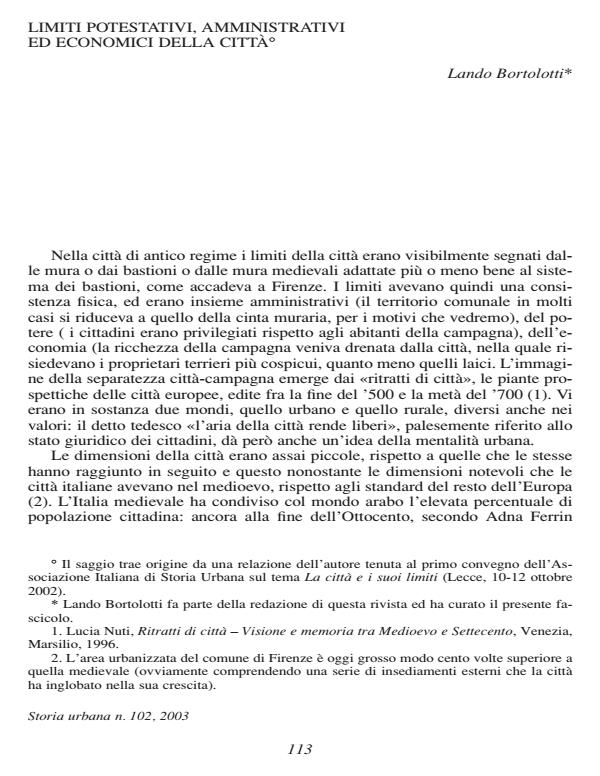Limiti potestativi, amministrativi ed economici della città
Titolo Rivista STORIA URBANA
Autori/Curatori Lando Bortolotti
Anno di pubblicazione 1994 Fascicolo 2003/102 Lingua Italiano
Numero pagine 14 P. Dimensione file 63 KB
DOI
Il DOI è il codice a barre della proprietà intellettuale: per saperne di più
clicca qui
Qui sotto puoi vedere in anteprima la prima pagina di questo articolo.
Se questo articolo ti interessa, lo puoi acquistare (e scaricare in formato pdf) seguendo le facili indicazioni per acquistare il download credit. Acquista Download Credits per scaricare questo Articolo in formato PDF

FrancoAngeli è membro della Publishers International Linking Association, Inc (PILA)associazione indipendente e non profit per facilitare (attraverso i servizi tecnologici implementati da CrossRef.org) l’accesso degli studiosi ai contenuti digitali nelle pubblicazioni professionali e scientifiche
The pre-industrial towns were surrounded by walls: the administration and power boundaries generally coincided. Only the economic boundaries exceeded the walls. The opposition town-countryside was clear-cut. The towns belonging to the net-like system (according to the definition by P.M. Hohenberg and L.H. Lees) was not the rule, but the exception. In our times the oldest opposition town-countryside is growing weaker. The town boundaries, likewise the districts’ and regions’, are losing the old meaning. The public utilities like health, education, water supply, public transport and so on are more and more overcoming the administration boundaries. Thanks to the spread of information, today every town can have world wide connections, thus belonging to the global system of towns. So life is no longer local because it develops in a manifold space. In Italy a great difficulty is represented by the inadequate size of the town hall which is, however, the only public body people rely on.;
Lando Bortolotti, Limiti potestativi, amministrativi ed economici della città in "STORIA URBANA " 102/2003, pp , DOI: